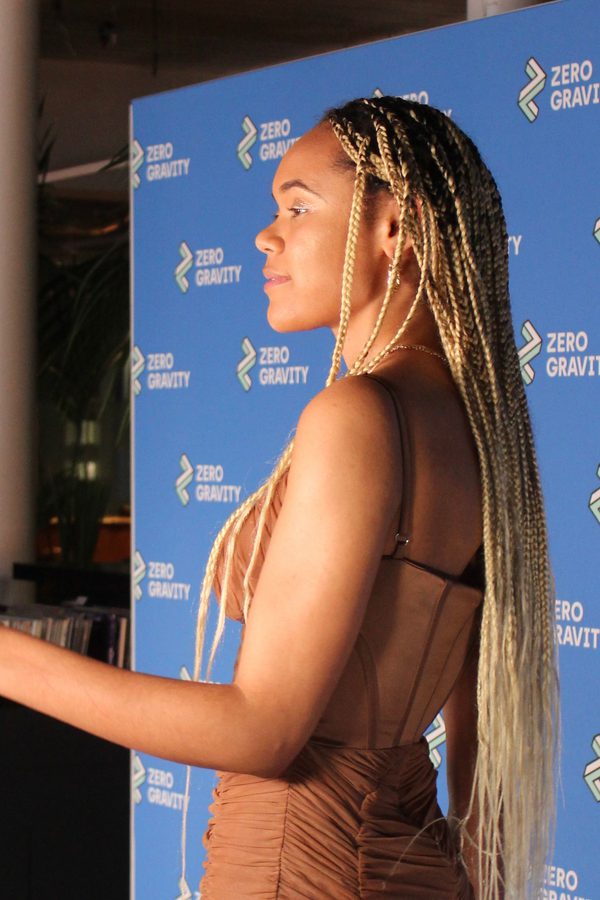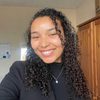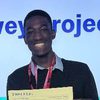
Embracing Softness: Notes from a Gen-Z Leader

By Lucy Davies-Kumadiro – 11th July 2024
Lucy Davies-Kumadiro, our Head of Brand Marketing at Zero Gravity, has written us a spectacular blog about her career journey. In it, she covers off a journey of social mobility, lessons in sticking to your morals, and the value in not always being the loudest voice in the room.
Embracing Softness: Notes from a Gen-Z Leader
As the Head of Brand Marketing at Zero Gravity, my career journey has been anything but conventional. Like many of our members, where I’m at now looks a lot different than where I started. I grew up in a single-parent family in a market town in the Midlands. As one of the only people of colour at my school, I grew up wondering where I fit in. However, each step of my journey has shown that what I used to perceive as my vulnerabilities were actually my greatest sources of power.
Leaving home, and taking a leap
At 17, I left behind everything I’d ever known for a place I’d never visited: Nashville, Tennessee. A social mobility program helped me secure a full scholarship to a US university —an experience that was both challenging and eye-opening. I often think about how different life would be if I had not seen the poster advertising this opportunity at my sixth form, and given the application a shot. I speak to lots of Zero Gravity members who are often worried about leaving home for university. It can be challenging to be so far away from friends and family and have to fend for yourself when it comes to finances. I certainly had some very rogue part time jobs and microwave rice meals along the way. But I wouldn’t change my decision for anything. Having to build an independent life for the first time was the scariest thing I’d ever done. But it was also the first time I came face to face with who I really was.
What even is an internship, anyway?
While studying in the US, I stressed every summer about trying to secure an internship. Everyone around me had seemed to secure summer positions in consulting, banking, media, without even trying. Often these opportunities came through connections, somebody’s dad worked here, somebody’s aunt could house them for the summer. My grades were good and I had worked so many different part time jobs, but I couldn’t get my foot in the door professionally. I didn’t know what I was doing wrong.
Finally I secured a place on a diversity program specifically for ethnic minority candidates interested in advertising. This was my first ‘professional’ opportunity. It unveiled the world of marketing and advertising to me—a world I knew nothing about previously – other than what I had learned from watching every season of Mad Men. My experience showed me why offering opportunities to people from underrepresented backgrounds was so important. When we exist in an unequal playing field, it’s important to address the imbalance and do something to plug the gap.
A consulting misfit
Thanks to the professional experience I now had, and the professional network I’d built during my time at university, I landed a graduate role in brand consulting. This taught me how to craft and tell persuasive stories, essential skills in a competitive field. I became an expert in creating beautiful decks, learned how to think like a customer, and helped my clients understand how they needed to evolve in order to stay relevant.
Even though I loved the skills I was building, the environment wasn’t a natural fit. The loudest voice in the room often dictated the direction of a project and people were usually expected to speak over others and interrupt to be heard. Silence was not an opportunity to reflect but a gap to be filled. This method of communication was alien to me. I toyed with the idea of adopting this style, which suited some of the super talented people I worked with, yet it felt so distant from my true self that it left me feeling unhappy. Even when praised for my performance, it felt hollow, unaligned with who I truly wanted to be.
Making money for the first time
I was also shook by how my income level had changed. My entry level salary seemed astronomical compared to the level of income I had grown up on. While I had expected making money for the first time to feel good, and I definitely developed a penchant for ginger shots, it also came with greater responsibility.
It was at this point in my journey that I first came across the concept of the 'black tax,' the financial and emotional support often expected from people of colour who achieve relative financial success in families and communities where such success is rare due to social inequalities.
It became sobering to compare my trajectory with friends and family members from similar backgrounds who didn’t have the same opportunities. Some were struggling daily with basic necessities, or interacting with systems like schooling and prison in profoundly different ways. While in some ways I had achieved what I set out to, I felt that taking a salary and just accepting systems the way they were – without trying to change them – was a disrespect to my community, and the people I loved.
It also sometimes created a feeling of alienation from the people I worked with, who mostly came from much wealthier backgrounds. Everything – from the clothes I wore and how I styled my hair, to my skin colour and how I spoke, to the activities I did outside of work – all seemed to make me stand out. People often complimented me for being different, but it took a lot of energy to feel so visible all the time simply for being myself. I struggled with imposter syndrome, and often found myself working super hard to prove I belonged, and that I could excel in the job. Even though on paper I was doing well, I felt like I always had more to prove, and came close to burning out.
Slipping off-course - and finding purpose
It was during this period of discord that I realised the importance of purpose in my life. Learning skills was one thing, but applying them meaningfully was another. One morning I was completing some work for one of my clients: a hotel chain. We were helping them anticipate trends in their industry and stay ahead of the curve. In one of those random moments where life shows you to yourself, that very same day I met with one of my close friends from Ivory Coast. She was deeply upset by a hotel chain building on the land in her home country, disrupting the natural environment and devastating people’s livelihoods. She asked me to sign a petition she was launching about this issue. On reading the petition, I was shocked to realise this action was being taken by the very same hotel chain I had been crafting a compelling brand story for earlier that day. It was a reminder that the work we do has real impact and that even things that feel very far away can actually have meaning close to home.
I asked myself, did I want to use my abilities solely to increase profits for businesses I didn't necessarily believe in? Or did I want to leverage them to effect change in a world grappling with numerous challenges? Leaving uni, I had been strongly motivated by wanting to secure a stable income. But once my inner child had this security, I finally felt safe enough to consider what truly mattered to me. These new reflections shifted my career trajectory towards a path where I could use my skills for greater good.
This led me to Zero Gravity, where I joined as a Brand Manager, committed to doing work that was purpose-driven and impactful. Zero Gravity existed to power students from backgrounds like mine into the opportunities they deserved. I felt that I understood the brand intimately, and hoped I could be a good guardian for it as the business grew.
In my first weeks at Zero Gravity, I realised how much a culture and environment could change my whole experience of work. I felt understood on a human level, and my differences from my colleagues didn’t divide us, but gave us the opportunity to learn from each other.
Embracing a new style of leadership
One of the most transformative realisations on this journey was recognising that my natural softness was not a weakness but a profound strength. Leadership is often based on Western and patriarchal ideals like speed, control and rationality. But, rather than trying to model traditional leadership, Kim, our Chief Marketing Officer encouraged me to harness my natural qualities and skills to inform my style of leadership. She challenged me to be the kind of leader I would like to have.
Thanks to this encouragement, and feeling seen and understood at work, I was able to embrace my natural qualities. For example, in place of speed and urgency, I preferred making space for reflection and consideration (and dancing on the way to work). In place of authority, I was much more drawn to consensus. Instead of always making the logical choice, I often opted for the intuitive and emotional one. These were all skills I felt my background and culture had gifted me, that instead of repressing I could allow to shine through. Through being myself, and speaking from the heart, I’ve been able to deeply connect with our members and our team. A year into joining the company, I was promoted to Head of Brand Marketing, a role in which I could further influence our brand's direction and ethos.
Knowing I am part of a deeply courageous generation, gives me the confidence and power to know it’s okay to do things differently. As a Gen-Z leader, I believe in wellbeing and freedom as being key to any purposeful work. Rather than encourage my team to work hard at their own expense, I encourage them to rest, to push back on deadlines when they don’t have capacity, to take genuine time out when they’re sick, and to work from home when they don’t have the energy to be in the office, whether that is because life is tiring or they’ve just gone through a break-up (perhaps the greatest sickness of all). These are all small actions, but each one brings me closer to embodying a freer life, while we get to work building a better world.
Looking Ahead
I hope my journey can be a reminder that where you start is only the beginning. Each of us has unique strengths and vulnerabilities. When we embrace them, they can lead us to extraordinary outcomes. As the next-generation workforce, it’s up to us to change up the way things are done, and not just make a living, but make a difference.
What a story, eh? Thanks so much for sharing your epic journey Lucy - and we're so glad that you found your way to us - we couldn't imagine Zero Gravity without you. Fancy scoring someone as wise as Lucy as a career mentor? Make sure that you're signed up to the platform, and apply to receive career mentoring from someone who has been in your shoes.
A professional yourself with some good wisdom of your own to share? Click this link here to become a career mentor yourself, and impart some serious wisdom back to the next-generation workforce.















